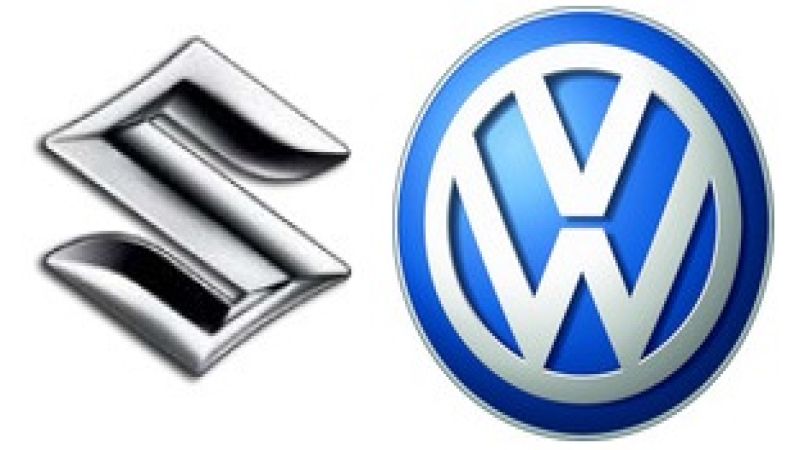Suzuki has announced their desire to end their tumultuous two-year relationship with Volkswagen, which bought a nearly 20 percent stake in Suzuki, one of Japan's smallest automakers, back in December of 2009. In return, Suzuki said it would sell back its 1.5 percent stake in Volkswagen, thus indicating Suzuki wants to be 100 percent independent of one of the world's largest automakers. Suzuki corporate chairman Osamu Suzuki said today that the severance shoulld be like a divorce and that each one should "say goodbye with a smile" rather than harbor feelings of animosity.
The beginning of the press conference didn't begin so diplomatically, however, as Osamu Suzuki called VW a "ball and chain" and said that they were not acting like mature adults. Executive VP Yasuhito Harayama said that Volkswagen's counter-statement that Suzuki had violated their contract was akin to a "declaration of war," and that it is "impossible to maintain healthy relations under such conditions." Volkswagen is referring to Suzuki's decision to purchase diesel engines fron Fiat as its breach of contract, whereas Harayama disputed that the Fiat engine sourcing had been in effect long before Volkswagen came along, and since Volkswagen couldn't supply a similar engine, that there was no conflict of interest.
However, Suzuki has said that Volkswagen's comments to investors about its position with the Japanese automaker are the main reason for Suzuki's disenchantment. Volkswagen's message in its annual report released in April said that it could "significantly influence financial and operating policy decisions" at Suzuki, while Osamu Suzuki had been adamant in clarifying that Suzuki was not one of Volkswagen's ancillary brands like Bugatti or Bentley.
This announcement further assures the dissolution of the cooperation between the two brands on hybrid and electric vehicles, and it means the plan to broaden Volkswagen's exposure in India, which is the second-fastest growing economy on the Asian continent, will not receive aid from Suzuki, which sold over 1.1 million cars in India in 2010, compared to Volkswagen's scant 53,000. Nonetheless, Volkswagen still sees Suzuki as "an attractive investment" according to investor relations chief Christine Ritz, and it currently has no interest in selling or reducing its stake in Suzuki.
Source: Automotive News
Set Torque News as Preferred Source on Google










